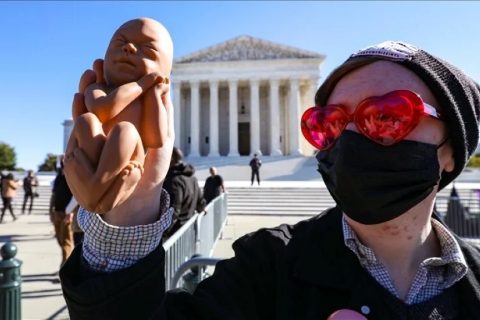Kadir Üstün
Coordinator, Washington DC
Kadir Ustun is the Executive Director at the SETA Foundation at Washington, D.C. He also serves as an Assistant Editor of Insight Turkey, an academic journal published by the SETA Foundation. Dr. Ustun holds a PhD in Middle Eastern, South Asian, and African Studies from Columbia University and a Masters degree in History from Bilkent University. He has contributed to various SETA reports and his writings have appeared in various publications such as Insight Turkey, Al Jazeera English, Daily Sabah, Hurriyet Daily News, Mediterranean Quarterly, and Cairo Review of Global Affairs among others. He is also co-editor of edited volumes History, Politics and Foreign Policy in Turkey, Change and Adaptation in Turkish Foreign Policy, and Politics and Foreign Policy in Turkey: Historical and Contemporary Perspectives.
-
Opinion
The ‘tragedy’ of US policy vis-a-vis Israel
The Biden administration seems to have at least temporarily succeeded in preventing Iran's direct attack on Israel from escalating into an uncontrolled war. The White House conveyed the message to Israel through various channels that any attack on Iran should be 'proportional,' also signaling to the Netanyahu government that US support for Israel would be limited to defense. With the assistance of the United States, the United Kingdom, and Jordan, Iran's UAVs and missiles were intercepted before reaching Israeli airspace, making the job of the Iron Dome relatively easier. However, Iran's low-intensity and controlled attack with low-cost weapons demonstrated that in a more 'real' war, Israel's task would be far from easy. The attack, which brought the urgency of Israel's defense to the forefront, seems to pave the way for a vote on a long-delayed aid package for Israel, Ukraine, and Taiwan in the House of Representatives. The fact that American foreign aid could reach the approval stage thanks to the attack on Israel indicates how much the issues that bring Republicans and Democrats together have decreased.
-
Opinion
Netanyahu’s Iran card…
In response to Israel's striking of Iran's consulate in Syria, Ayatollah Khamenei's statement of "retaliation will be given" has heightened the possibility of the regional proxy war escalating into direct conflict. Since October 7th, Netanyahu has been attempting to expand the conflict by targeting Hamas and Shia militia objectives in both Beirut and Syria. The relatively controlled continuation of the "regional war" relied on Iran and Hezbollah refraining from militarily supporting Hamas. However, Khamenei's remarks suggesting that striking the Iranian consulate would mean targeting Iranian soil have also put Washington on high alert.
-
Opinion
Trump’s election-focused abortion statement
In the presidential race, Trump demonstrated that he would not take an ideological stance on the abortion issue, which Biden wanted to make a central agenda. Instead, he refused to be cornered on this issue. Conservative Republican groups expected Trump to support a law that would impose abortion restrictions across the country. However, Trump, having seen how supporting Trumpian candidates who advocated for abortion bans hindered their electoral success in midterm elections, did not want to face the same fate.
-
Opinion
Social media came to Trump’s rescue
Social media seems to have come to the rescue for Trump, who's eyeing a return to the presidential race and grappling with financial woes due to recent hefty court fines. In a case brought by New York prosecutor Letitia James, Trump was hit with a record $454 million fine, but he couldn't come up with the necessary bond to prevent his assets from being seized during the appeals process. After the court accepted a $175 million bond and granted additional time, Trump, who owns 60% of the Truth Social platform, saw it go public on the Nasdaq exchange on Tuesday. Within a week, the company, traded under the symbol DJT, experienced around a 70% increase, reaching a market value of $8 billion and effectively adding about $4.5 billion to Trump's net worth on paper. Although Trump won't be able to sell his shares for six months due to stock market rules, he can potentially use them as collateral to secure the required bond from insurance companies.
-
Opinion
Did Biden abandon Israel at the UN General Assembly?
The 'immediate ceasefire resolution' issued by the United Nations General Assembly (UNGA) due to the United States' abstention indicates that the Biden administration's political pressure on Israeli Prime Minister Netanyahu persists. Despite the White House emphasizing that the decision is not binding and that there are no changes in policy, Netanyahu canceled the visit of the delegation he planned to send to Washington immediately after the UNGA decision. The fact that the Biden administration, which has been diplomatically protecting Israel with its veto power since October 7th, chose to abstain this time suggests that the crisis in bilateral relations has reached its peak. While Netanyahu may lean towards Trump, who has advocated for ending the conflict, Trump's remarks have increased American pressure.





